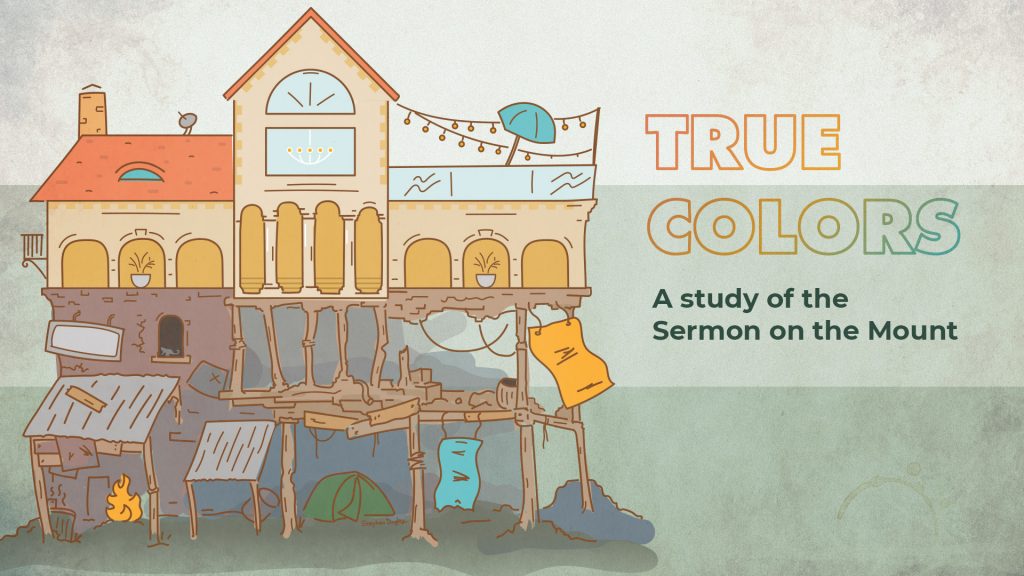Passage: Matthew 5:33-37
Guide for Group Discussion or Personal Reflection
Sermon Summary
Throughout Matthew 5-6, Jesus is unpacking what true righteousness looks like, and In Matthew 5:33-37, he continues to address the area of commitment making.
In Jesus’ day, many people were using God’s law, and the teaching surrounding it, not as a pointer to the kind of internal character God is aiming to develop in us, nor as a way of displaying God’s wisdom to the world, but—ironically—as a way of avoiding God himself, and avoiding obedience to his ways. In the area of oath-making in particular, people were swearing all kinds of verbose religious oaths— “by heaven” or “by Jerusalem”, for example (5:34-35)—as a way of trying to bolster their believability (because their “yes” or “no” wasn’t good enough), or as a way of lessening the consequences when they didn’t follow through with their oath (because they didn’t technically swear on God’s own name).
Though we may not literally swear oaths in the same way today, we too words and spin to either get ourselves out of commitments or to leave our options open. Just as the people in Jesus’ day, we also need to be challenged to value commitment and to keep our word, letting our “yes” be “yes”, and our “no” be “no” (5:37). True freedom, after all, is found in making commitments, not in keeping ourselves free of them.
Ultimately, Jesus wants to transform us from the inside out, into a people who value commitments at a deep level. The reason people made vows “by heaven” or “by Jerusalem” rather than “by God”, was because they thought that wording their oaths this way distanced them, by one degree, from God himself. And yet this whole world is God’s—heaven is his throne, and Jerusalem is his city—he is present in all of it, and so all of life is lived in light of his presence. In Matthew’s gospel, Jesus is Immanuel—“God with us”—who comes to manifest God’s presence to us, and stick with us, despite our sin and need. When we realize that he is committed to us in that kind of way, it will make us into committed people ourselves.
Sermon Outline:
•The Importance of Commitment (5:33-37)
• How Jesus Forms a Community that Values Commitment (5:34-36)
Group Discussion & Personal Reflection Guide
Re-read the passage(s): Matthew 5:31-37
The Importance of Commitment (5:33-37)
1) INTRO: The passage from this week’s sermon is really about the ways that people used words to distance themselves from making and keeping simple commitments. In what ways today do people cleverly use words, either to back out of commitments, or to make commitments while still leaving an “open door” to back out of them later? How have you yourself done this?
2) Re-read Matthew 5:33-37 and meditate on these verses together. Consider:
• In Jesus’ day, why were the people taking oaths?
• Why did Jesus tell people to “not take an oath at all”? (vs. 34)
• What was Jesus’ alternative to taking an oath?
• What did Jesus mean when he said that anything more than a simple “yes” or “no” comes from evil?
3) What are some of the practical consequences for a church body (or any community), when people are unable to rely on each other’s word? What kind of flourishing results in a community when people are truly able to trust that others will follow through on their word?
4) Is there an area of your life (e.g. at work, in friendships, with your family, etc) where you have developed a habit of not following through on your word? If so, what do you think is underneath your lack of follow-through? How might you remedy this?
5) Is there an area of your life where you’ve been holding out on making a formal commitment, but you sense it’s time to go ahead and “give your word”?
How Jesus Forms a Community that Values Commitment (5:34-36)
1) In what ways did Jesus keep his word to us? How is Jesus the perfect model of “letting what you say simply be ‘yes’ or ‘no’”? How might this truth transform us into a people who value making commitments and keeping our word?
Additional Application Questions
Q) How else would you like to engage with God this week?
Q) How can you tangibly care for those in your community this week, both inside and outside of the church?
Prayer
Spend time praying for yourselves, our church community, the North Shore community, and our nation and world—particularly those most vulnerable.

